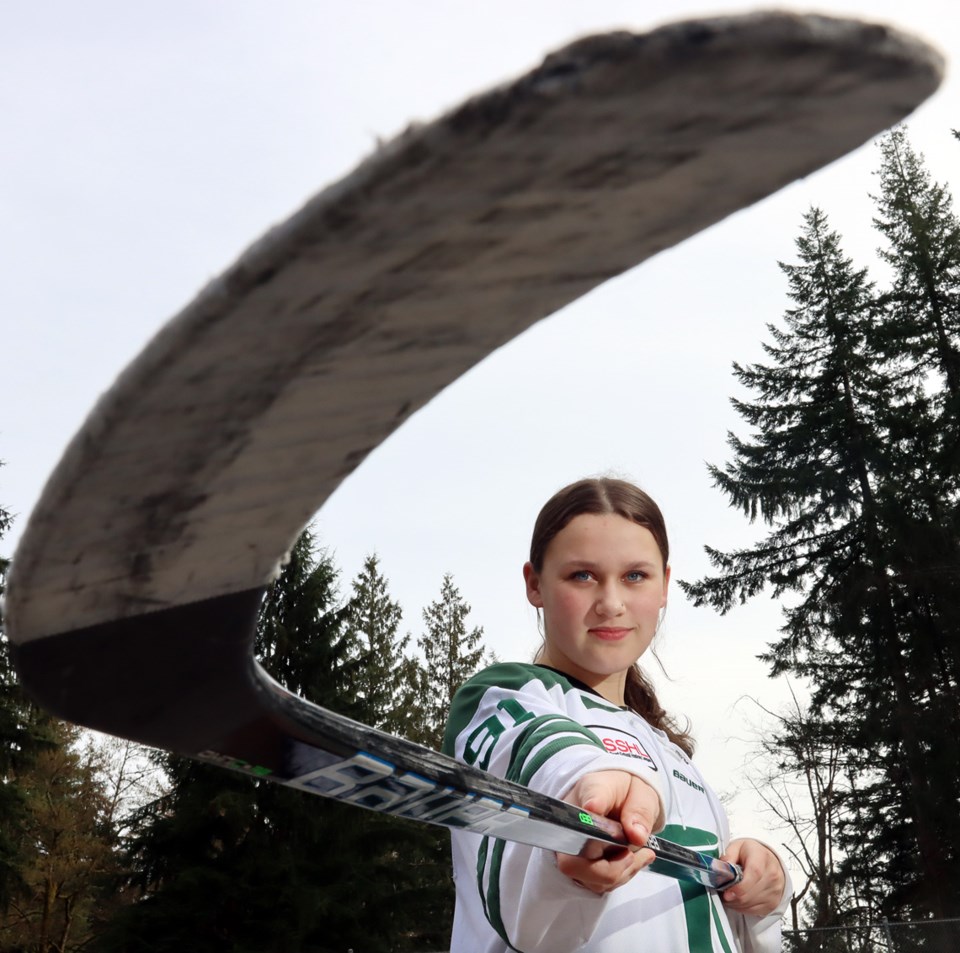A unique mentorship program is adding fuel to a Coquitlam hockey player’s fire to take her game to the next level.
Jordan Baxter is one of 21 young women from across Canada chosen to participate in the first Scotia Rising Teammates initiative that pairs them with top female professional and national team players to learn and take inspiration from their journeys.
“I know how powerful it was for me to meet female hockey players and role models when I was younger,” said Canadian national team player, Natalie Spooner, one of the mentors.
The four-week program includes weekly virtual meet-ups with speakers like players and coaches, as well as one-on-one Zoom calls with their mentor.
Baxter is paired with Sarah Nurse, who won a silver medal with Canada’s women’s team at the 2018 Winter Olympics and is a graduate of the University of Wisconsin Badgers’ hockey program. She said their chats have been invaluable in showing her a path forward in the game.
“It’s just super helpful in every aspect of my hockey career,” said Baxter, who started playing in the Tri-City Predators association 11 years ago and currently attends an academy program at North Delta secondary school where she plays U18 Prep.
Baxter said while she participated in other sports growing up, like soccer as well as field and box lacrosse, hockey quickly came to the fore because of its tight-knit sense of community, especially in the female associations. She said because of the comparatively small numbers of young women who play competitively, everybody knows everybody and friendships are quickly formed, even with rivals.
“Everybody is connected,” she said. “They’re all as one in the hockey community.”
Baxter, a centre, said as she rose through the hockey ranks, she started to take her lead from other players she knows who compete at a high level, like Port Moody’s Jenna Buglioni, who’s played for Canada’s national junior team and just finished her freshman season at Ohio State University.
But connecting with some of female hockey’s stars has been inspirational.
Baxter said there was a lot of conversation with the mentors about leadership and the important role being a good person can have in becoming a better hockey player.
“It’s not your ability on the ice that will get you to your goal,” she said. “You never know who could be watching.”
The mentorship program, which also includes a $1,000 donation to each participant’s team, is as much about keeping young women engaged in hockey as cultivating its next generation of stars. According to a study by the Aspen Institute, by the age of 14, girls drop out of sports at twice the rate of boys. The U.S.-based Sports and Society program cites factors like limited opportunities for scholarships, too few role models, as well as scheduling and equipment that favours boys as some of the factors responsible for the drop-off.
Baxter said she’s already eyeing college programs south of the border and she someday hopes to compete for Canada. She said her discussions with the mentors, as well as the connections she’s making with some of the program’s other participants, have shown her those goals are within reach.
“This is a big possibility,” she said.



